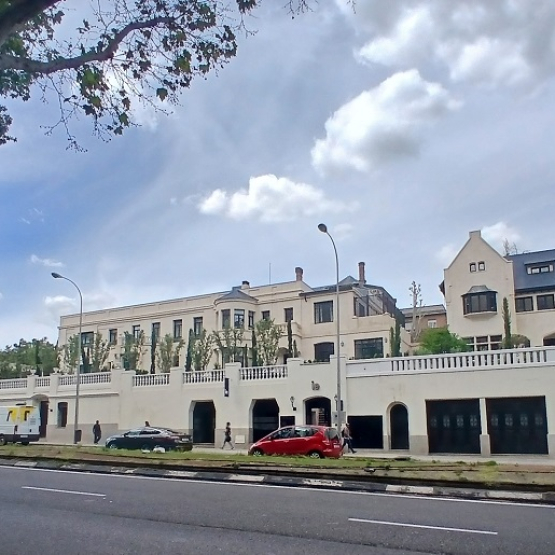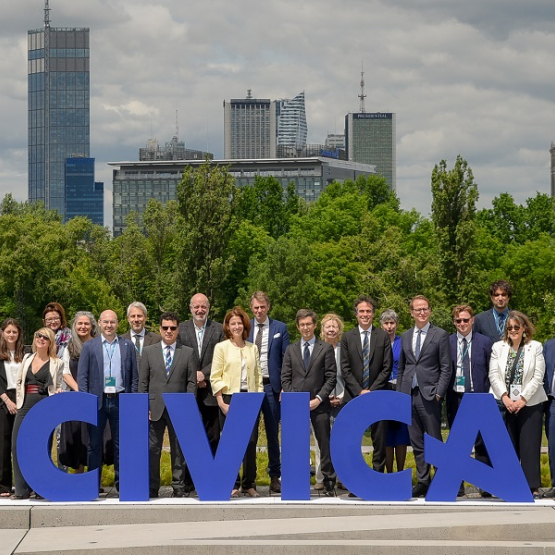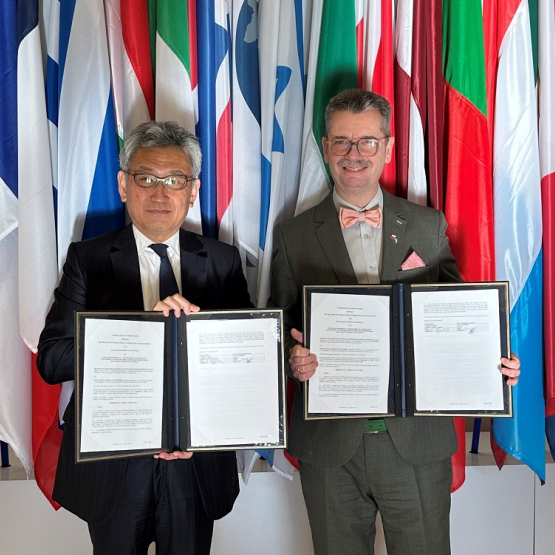
Since October 2022, the SGH Warsaw School of Economics has been carrying out activities as part of CIVICA – The European University of Social Sciences alliance. Most members of the SGH academic community have already learnt about numerous examples of activities undertaken by the alliance in many dimensions of our university performance – from teaching, to research cooperation, integration of library resources, student exchange and finally to sports events. As part of CIVICA, SGH is responsible for building the community and identity of the alliance, primarily among students, but also among other members of the academic community of partner universities (WP 9 – Community and Identity). One of the initiatives implemented in this area is the Student Engagement Fund (SEF), whose activities we would like to present in this article.
The idea behind the creation of SEF was to provide students and young researchers (Early Stage Researchers ESRs) with the opportunity to carry out projects together. Within WP9, funds have been reserved for this type of activity and their distribution is determined by the results of the competition procedure.
The projects submitted under SEF should promote and support European cooperation and intercultural understanding through the involvement of students and ESRs from at least two CIVICA partner universities and fully conform to the local rules and policies regulating students and ESRs-led initiatives at each of the partner universities involved. In addition, they should fall within the four thematic priorities of CIVICA:
- Societies in transition.
- Earth crises.
- Democracy in the 21st century – Europe anew.
- Data-driven technologies for social sciences or in general EU priorities such as sustainability, multilingualism, diversity and integration, solidarity, promotion of European culture and cultural interaction.
According to the SEF regulations, student initiatives may include a very wide range of activities carried out with the participation of teams from at least two universities of the alliance – such as competitions, conferences, workshops or hackathons. Such events can be organised both online or in a hybrid mode and with the assumption of exchanges between CIVICA universities. The detailed rules for constructing the SEF project budget (including the categories of acceptable and unacceptable expenditure) and the procedures related to the evaluation of projects and making decisions on their financing are included in the SEF regulations and in the call for proposals.
The first SEF competition was concluded at the end of December 2024. It is now an excellent opportunity to present its results, as well as to summarise and draw the first conclusions from the SEF operation.
The first SEF call for proposals was announced on 1 October 2024. There were 28 applications for co-financing of projects submitted, 21 of which met the formal requirements and were subject to substantive evaluation. The main factor disqualifying the application was, despite the explicit provisions of the SEF regulations, the lack of pre-approvals of partial budgets from all the universities involved.
Project applications meeting the formal requirements were evaluated on the basis of four criteria set out in the SEF regulations:
- quality and added value of the project (0-20 points);
- impact on the student community, also in terms of the number of students that will be involved/reached by the project, as well as the number of CIVICA universities involved in the application (0-10 points);
- thematic relevance of the project – alignment of the initiative with CIVICA thematic areas/EU strategic priorities/thematic areas (0-10 points);
- feasibility of the project and adequacy of the budget (this criterion includes the eligibility of the planned budget and the effectiveness of the expenditure, defined as the consistency of the requested funding with the planned activities and results of the project) (0-10 points).
Despite a high substantive rating of almost all the projects submitted, the SEF Committee was able to award funding to only 13 of them. The limited funds allocated to the first SEF call turned out to be a decisive factor. Aiming at the best possible allocation of limited funds, WP9 coordinators negotiated with project teams in several cases, which, thanks to the reduction in the amount of requested expenditure or the final agreement on the university cost-free participation in certain projects, made it possible to formulate the final list of co-financed projects.
CIVICA students prepared extremely interesting projects, addressing a number of important social problems – from the protection of women’s rights, to the issue of international migration, sustainable transformation of cities, challenges related to artificial intelligence to contemporary threats to democracy in Europe.
The vast majority of the submitted projects assumed the implementation of short mobility of students to universities associated in CIVICA, although in many cases the organisation of hybrid or online events was also planned. Smaller-scale projects, i.e. involving students from two or three CIVICA universities, prevailed among the applications. Moreover, it could be seen that the student communities of each university, to varying degrees, took advantage of the opportunity to make use of the SEF funding for projects. Among the universities involved in the largest number of implemented projects were SGH, LSE, Sciences Po and Hertie School.
Based on the experience of the first call for proposals under SEF, a review of the fund regulations and procedures is currently underway. The next call for projects will be announced in early autumn this year. As part of its promotion, an information campaign is planned to encourage participation in SEF, as well as registration of student organisations in the CIVICA database of university organisations. Student teams from SGH considering the possibility of implementing the project together with colleagues from other CIVICA universities are encouraged to contact the SGH International Centre for full information about the SEF rules.

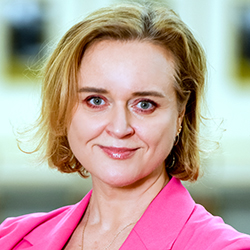
MAŁGORZATA CHROMY, Director of SGH International Centre, CIVICA Manager
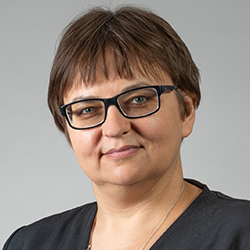
Doctor MAŁGORZATA ZNOYKOWICZ-WIERZBICKA, Deputy Director of SGH International Centre, WP9 Coordinator at CIVICA

